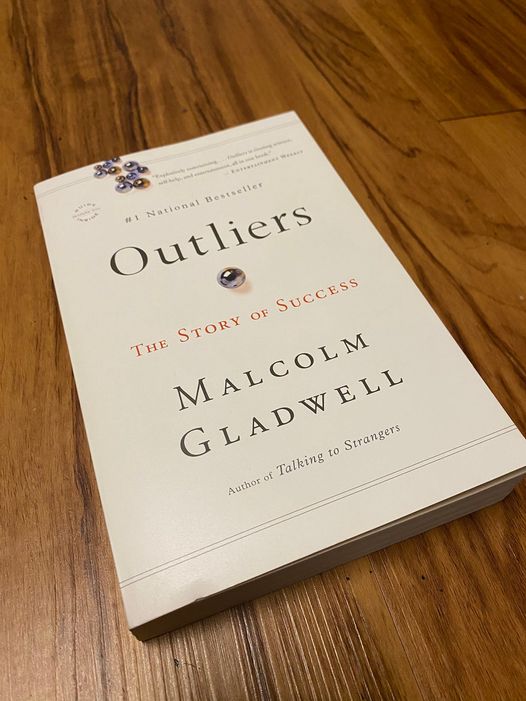LESSONS FROM "OUTLIER" BY MALCOLM GLADWELL
The book "Outliers: The Story of Success" by Malcolm Gladwell explores the factors that contribute to high levels of success and achievement. Published in 2008, the book challenges conventional notions of success and delves into the various elements that set exceptional individuals apart.
1. The 10,000-Hour Rule:
Gladwell introduces the concept of the 10,000-Hour Rule, suggesting that it takes approximately 10,000 hours of dedicated practice to achieve mastery in a particular field.
He provides examples, including the Beatles and Bill Gates, to illustrate how intensive and purposeful practice contributes to their success.
2. Cultural Legacy and the Matthew Effect:
Gladwell explores the idea of the Matthew Effect, drawing attention to the compounding advantages or disadvantages individuals experience.
He discusses cultural legacies and how certain opportunities can lead to cumulative
advantages, contributing to success.
3. The Roseto Mystery:
Gladwell examines the case of Roseto, a small Italian-American community in Pennsylvania with unusually low rates of heart disease.
The Roseto study raises questions about the impact of social and community factors on health and well-being.
4. The 10,000-Hour Rule Revisited:
Gladwell revisits the 10,000-Hour Rule and emphasizes the role of opportunity and cultural context.
He argues that while practice is essential, access to opportunities and cultural factors play a crucial role in achieving success.
5. The Ethnic Theory of Plane Crashes:
Gladwell explores the cultural factors that contribute to the success of certain ethnic groups in aviation.
He discusses communication styles, hierarchy, and power distance as crucial elements in preventing accidents.
6. The Influence of Birthdate:
Gladwell examines the impact of birthdate on athletic success, particularly in sports with age-specific cut-off dates for team selection.
He discusses the relative age effect and how being older within a cohort can provide advantages in skill development and confidence.
7. The Outliers in Education:
Gladwell looks at the impact of cultural background, parenting styles, and summer vacations on academic success.
He discusses the achievement gap and the ways in which cultural differences can influence educational outcomes.
8. The Power Distance Index:
Gladwell introduces the concept of power distance index (PDI) and its impact on communication and decision-making in different cultures.
He emphasizes how understanding these cultural nuances is crucial for success in diverse environments.
9. Case Studies of Success and Failure:
Gladwell presents case studies of individuals, including Bill Joy, the Beatles, and Christopher Langan, to illustrate the factors that contribute to their success or challenges they face.
He explores the interplay of talent, opportunity, and cultural factors in shaping outcomes.
10. Practical Implications and Reflections:
- Gladwell concludes with reflections on the practical implications of the insights presented in "Outliers."
- He encourages readers to reconsider their views on success and recognize the multitude of factors that contribute to achievement.
"Outliers" challenges the notion of the self-made individual and underscores the importance of understanding the broader context in which success occurs. Malcolm Gladwell combines storytelling, research, and statistical analysis to highlight the complex interplay of factors that contribute to extraordinary success. The book encourages readers to rethink traditional narratives about achievement and to consider the role of culture, opportunity, and practice in shaping individual outcomes.




